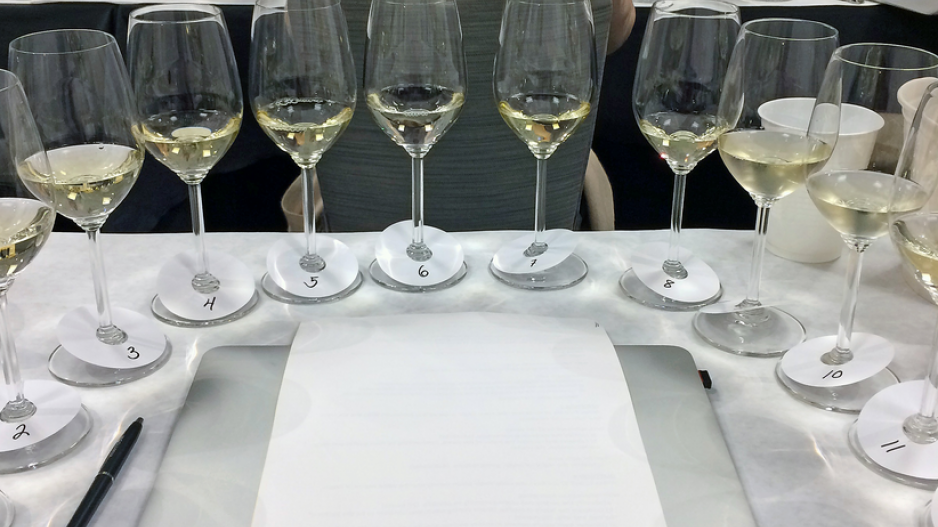By Michaela Morris, Westender. Image: Homework has never looked so good! Photo: Michaela Morris
I distinctly remember hearing the term “Master of Wine” at the first wine course I ever attended. It was presented as a designation reserved for an elite few who are able to taste a wine blind (without seeing the label) and magically guess where it comes from, right down to the specific vineyard. It sounded intriguing yet impossible and I had no intention of pursuing it. I was simply working in a restaurant to pay my way through university and just wanted to learn a little bit about wine.
Somewhere along the way, I was bitten by the wine bug and ended up adopting it as my career. I also eventually discovered that an MW goes well beyond ‘nailing’ the identity of a wine. Furthermore, as Peter Marks MW wisely asserts, “wine can never truly be mastered.” Instead the title recognizes a candidate’s mastery of the entire world of wine. It’s been compared to undertaking a PhD and requires the same dedication, persistence and hard work. The advantage is you get to taste a lot of wine throughout the process.
So after years of working in an industry I love just as much as the drink itself, I decided to sign up for the Masters of Wine Study Programme. The study is self-directed and the time frame is counted in years. Eventually I’ll sit (and maybe re-sit) a four day examination which includes essays on everything from grape growing, winemaking, quality control, the business of wine and contemporary issues of current trends.
Besides theory papers, there is indeed a series of blind tastings. For each, think 12 wines in just over two hours. But this ain’t a leisurely sip-a-thon. Based on appearance, smell and taste, we must answer questions about the wine’s provenance, grape and how it is made along with assessing the quality and commercial appeal. Taste like a detective and prove like a lawyer is the strategy.
If, and only after passing the theory and blind tastings, we must then complete a research paper…
I know; most people just want to drink the stuff. Believe me, that’s what I ultimately love most about wine. But I’m equally enthralled by the intellectual aspect and challenge.
So, is the reward those coveted MW letters?
“Being part of the community is the true prize,” declares Jean-Michel Valette MW. It’s not about arrogance and elitism. Those who have succeeded are counted on to make the world of wine a better place for all.
There are fewer than 340 Masters of Wine around the globe. Three are based right here in British Columbia and are truly raising the bar of our local wine scene. They’re also the most down-to-earth, unpretentious lot I know. Barbara Philip MW is the category manager for the wines of Europe at BC Liquor Stores. Those fantastic bottles on BC LDB shelves from France, Spain, Italy have much to do with her keen selection. Besides being a top-notch wine educator, Rhys Pender MW makes wine with his wife Alishan Driediger in the Similkameen Valley under the Little Farm label. Then there is my mentor, Markus Ansems MW, who earned his title just last year. He’s the winemaker and owner of Daydreamer Wines in Naramata.
Let me be crystal clear. I am not a Master of Wine. Yet. True mastery takes time and the road ahead is long. But I intend to enjoy every step (and drop of wine) along the way wherever it ends up leading me.




